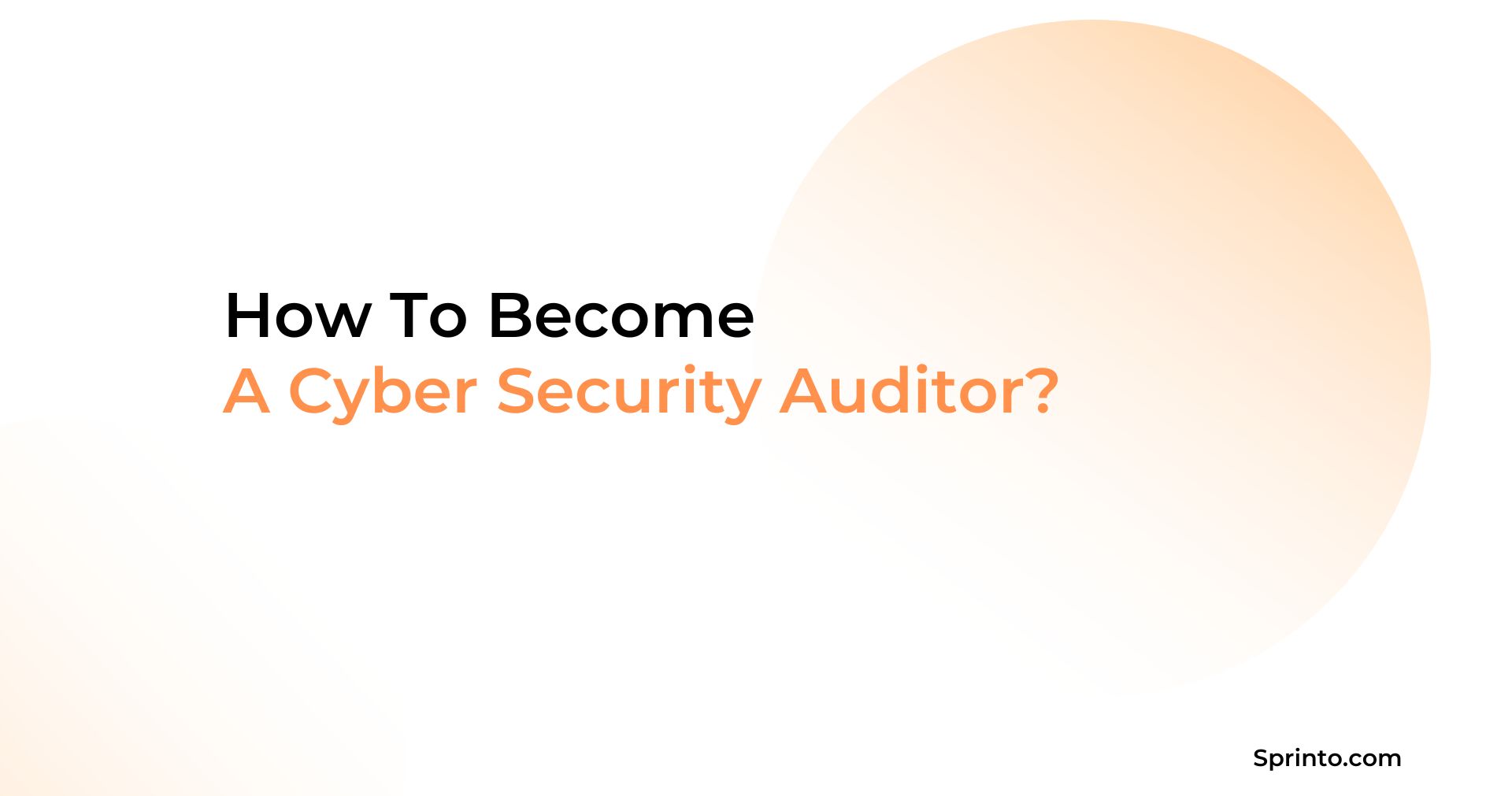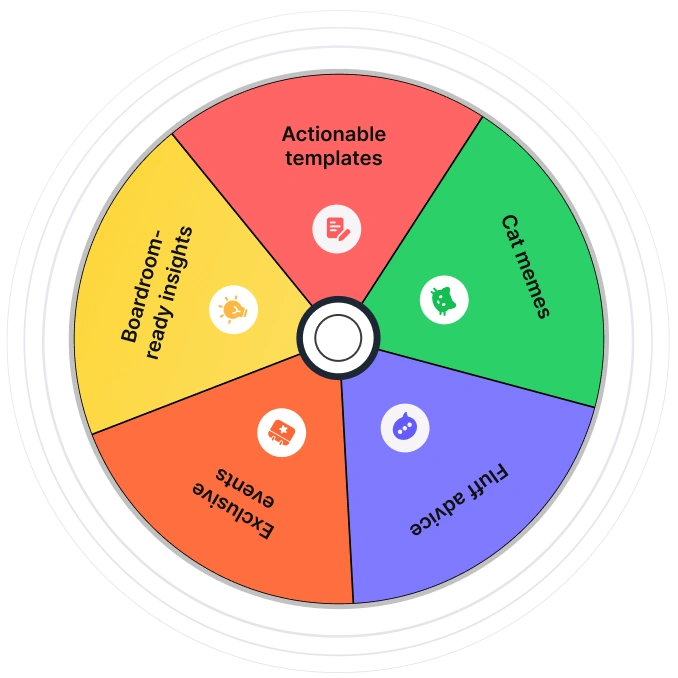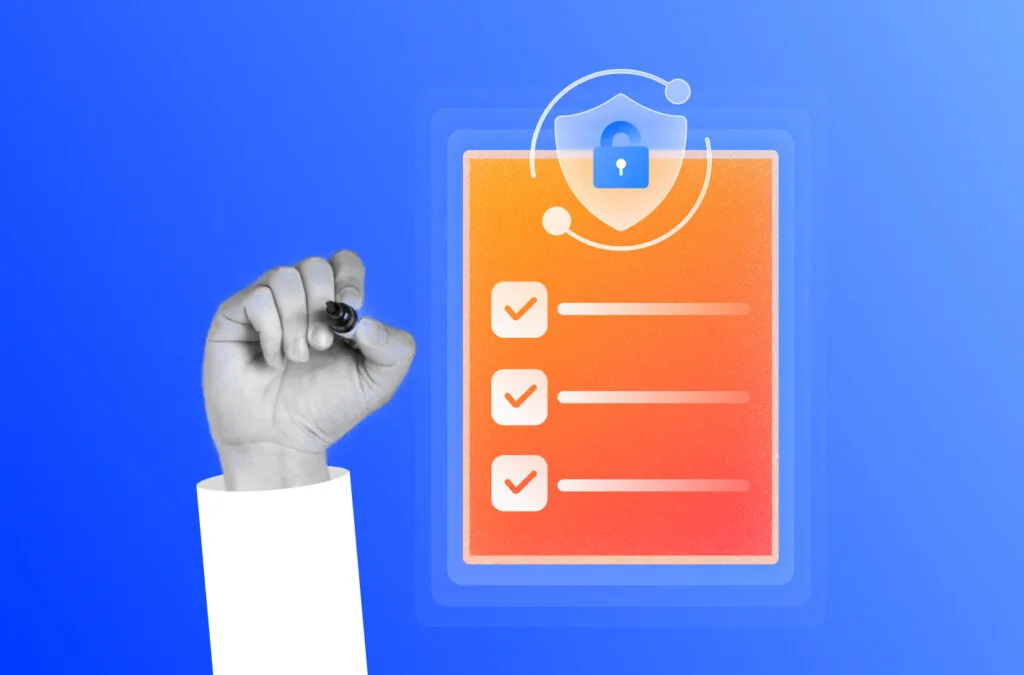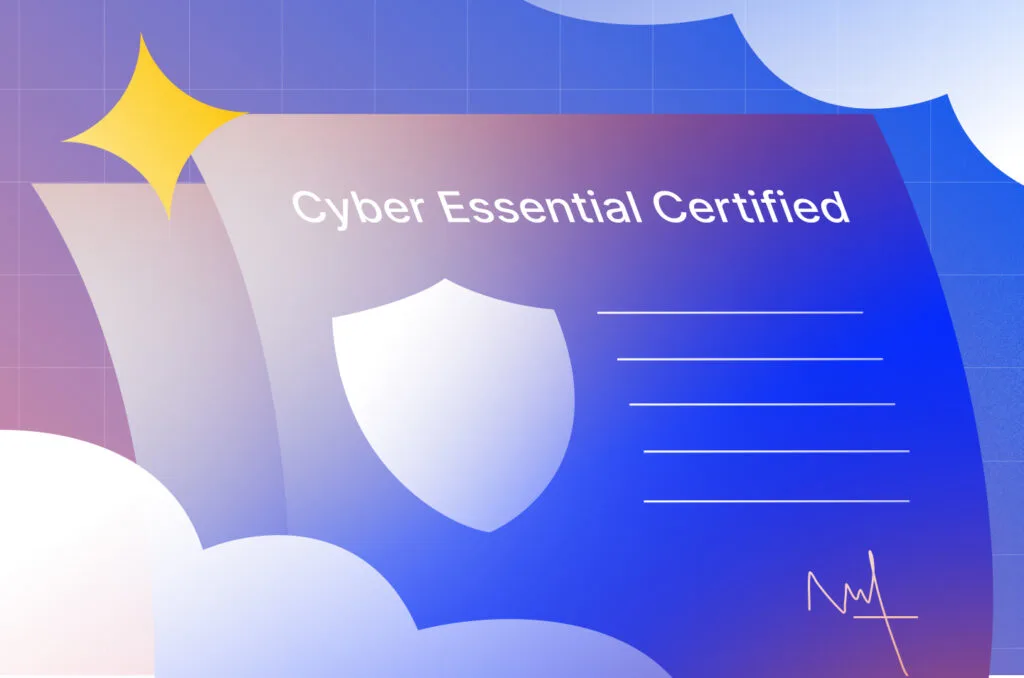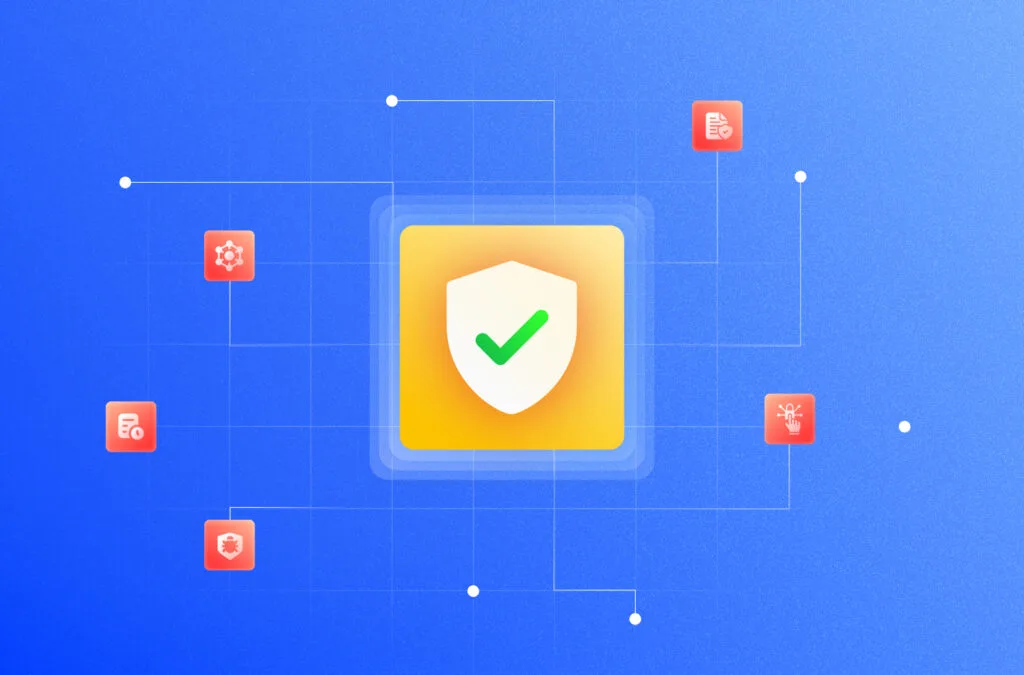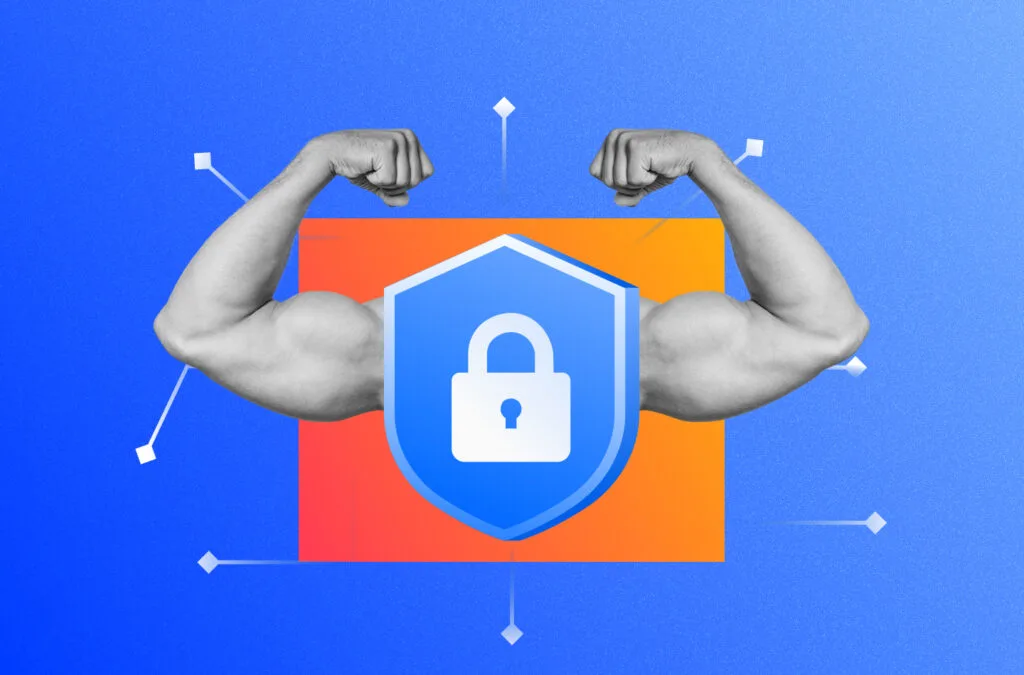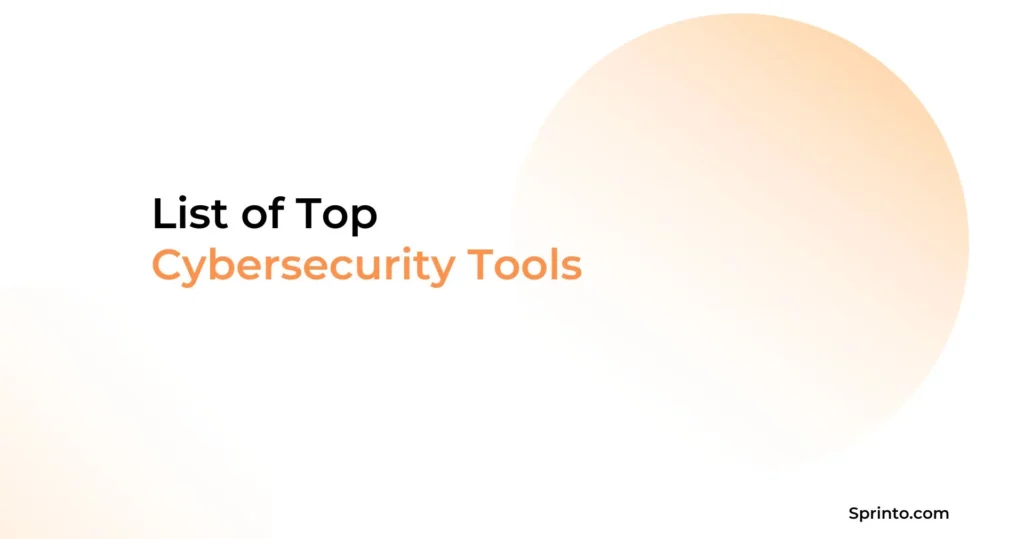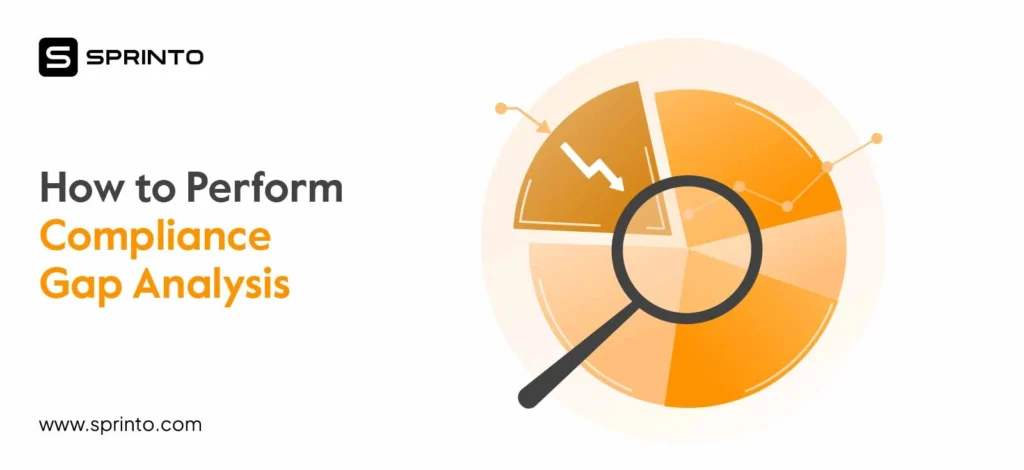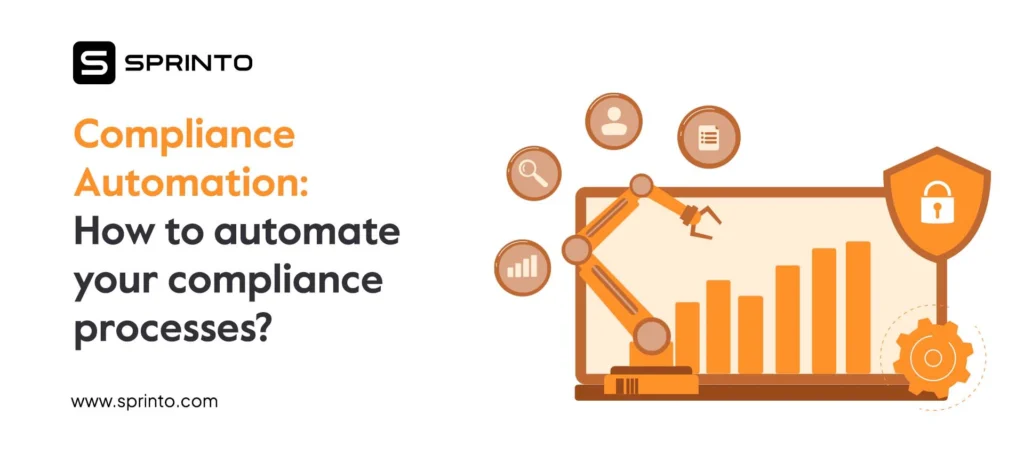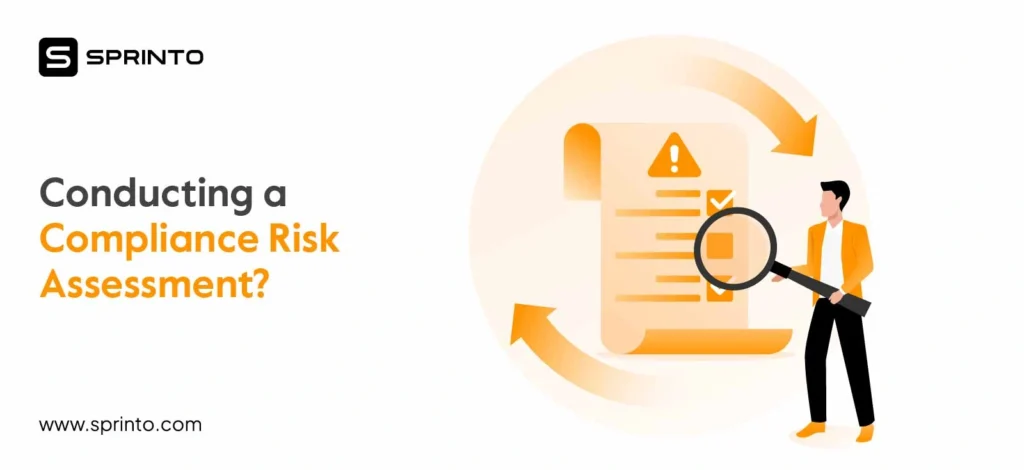Cybersecurity is the #1 risk for organizations in the public and nonprofit sectors. 71% of chief audit executives (CAEs) called it high or very high risk in a survey.
Yet most audit teams are still playing catch-up. Only 28% said they have the advanced analytic and monitoring skills needed to log files, find anomalies, and provide compliance with frameworks like SOC 2 or ISO 27001.
This combination of high organizational risk and low audit readiness has made cybersecurity auditors a non-negotiable part of an audit team. Read on to find what this role involves, the skills and certifications you need to qualify, and how to get into the industry.
- The easiest way to become a cybersecurity auditor is to start as an IT auditor. You can then move into a cybersecurity auditing position after you gain enough experience and become certified.
- Cybersecurity auditors verify if an organization’s systems and controls meet security frameworks like SOC 2, ISO 27001, HIPAA, and PCI DSS.
- You need to understand cybersecurity fundamentals and have a bachelor’s degree and certifications like CISA to move into a cybersecurity audit-focused position.
Who Is a Cybersecurity Auditor?
A cybersecurity auditor is someone who closely examines how secure systems are and whether an organization is meeting legal, regulatory, and contractual obligations regarding data security.
Most auditors start by scoping out the system, understanding the technology in place, how data is handled, and who has access. They then compare the organization’s controls to external standards like ISO 27001, SOC 2, NIST, HIPAA, or PCI DSS.
To verify what they’re seeing, auditors will talk with staff, review documentation, test controls, and sample data, usually in an automated but still hands-on investigation. Once an auditor has walked through and gathered evidence, they’ll document their findings in a report.
When starting out, auditors are usually limited to a narrow slice of the audit, like checking if Windows machines meet a specific control in PCI DSS or HIPAA.
But over time, they begin working on other platforms, like mobile, cloud, or network infrastructure, and then specialize in one or two areas.
What Skills and Qualifications Are Required for Cybersecurity Auditors?
As a cybersecurity auditor, you’re expected to understand the systems you’re reviewing. You also need to explain your findings in a way that executives and non-technical staff can understand and act on. Here are some skills and qualifications you’ll require:
Soft skills
- Analytical thinking: As an auditor, you need to work through hundreds of data points, find the patterns, and connect technical issues to business impact. This requires you to be able to think analytically without losing sight of the big picture.
- Ability to collaborate: You’ll often work with internal staff who feel defensive about gaps in their systems. If you aren’t tactful, you may get stonewalled.
- Adaptability: Every audit can be different, especially when you’re starting out. This means you need to be able to adjust frameworks, tools, and communication style depending on whom you’re working with.
Technical skills
- IT fundamentals: You should be comfortable with operating systems like Windows, Linux, and macOS, cloud platforms (like AWS, Azure), and network infrastructure (routers, firewalls, switches).
- Security system knowledge: You need to stay up to date on current threats and attack vectors. Understand how vulnerabilities are exploited and know how to use tools for scanning, penetration testing, and configuration reviews.
- Security frameworks: You’ll usually need to measure organizations against ISO 27001, SOC 2, HIPAA, PCI DSS, NIST, and COBIT. This means you should have a working knowledge of these and know how to map controls across different standards when needed.
- Compliance reporting and documentation: As an auditor, you need to know how to write. This will require you to humanize cyberspeak, gather evidence correctly, establish audit trails, and document repeatable processes.
- Audit tools: Hands-on testing is required at many steps of the auditing process. But you also need to know how to use scanners like Nessus or Qualys, configuration checkers, and log analyzers to help you test controls at scale. Learning about compliance automation tools is also a good idea, as they help you become more efficient.
Educational Background
There’s no single “must-have” degree to become a cybersecurity auditor. What matters most is that you know how cybersecurity systems work, how data moves, and how business decisions can influence compliance (and vice versa).
Here’s a breakdown of the average educational background of cybersecurity advisors:
Undergraduate degrees
Some auditors enter the industry after completing a degree as an engineer, data analyst, or lawyer. But most professionals usually start with the following degrees:
- Information technology/computer science
- Cybersecurity
- Accounting or finance
Many auditors also do not have relevant degrees to their jobs; however, this path can be very hard to break into.
Graduate degrees
Many auditors go for a master’s before they become senior auditors or part of the management. Some common majors include:
- Cybersecurity
- Information systems (MIS)
- Risk management
- MBA (with an IT or security focus)
Key Certifications for Cybersecurity Auditors
Certifications are the best thing to have if you want to become a cybersecurity auditor. They validate your ability to assess vulnerabilities and help you report on compliance.
Here are seven of the most recognized certifications for cybersecurity auditors:
- Certified Information Systems Auditor (CISA)
- Certified Information Systems Security Professional (CISSP)
- ISO 27001 Lead Auditor
- CompTIA Security+
- IT Infrastructure Library (ITIL) certification
- Certified Information Security Manager (CISM)
- Certified in Risk and Information Systems Control (CRISC)
How to Become a Cyber Security Auditor
There is no set path to becoming a cybersecurity auditor. You’ll have to move through a series of steps to get the experience and develop the skill set to advance into more complex auditing roles. Here’s how you’ll start:
1. Learn IT/security fundamentals
If you can, you should start with a degree in IT/Security. This will help you understand networks and operating systems, learn what vulnerabilities can affect systems and databases, and get hands-on experience with cybersecurity principles.
But if you already have an undergraduate degree in another field, you could still pivot into cybersecurity through a bootcamp or IT-focused certifications like CompTIA+.
2. Apply for an IT audit or compliance role
Once you’ve built a foundation in IT and security, you should get hands-on experience in a role that exposes you to audit and compliance processes. This could include entry-level positions like IT auditor (junior), compliance analyst, or risk associate.
In these roles, you’ll learn how organizations monitor systems, enforce internal controls, and ensure compliance with frameworks like SOX. You can also get a master’s degree at this point to meet requirements for more positions.
3. Become Security+ certified
After you’ve built up some experience around auditing and compliance, you should validate your skills and show your employer that you’re ready for more responsibility. Becoming CompTIA Security+ certified is a good way to do that. This entry-level certification covers:
- Threats and vulnerabilities
- Risk management
- Cryptography
- Access controls
- Network security
Many employers list it as a baseline requirement for cybersecurity roles. Once you get Security+ certified, you’ll be more prepared to move into audit-focused roles.
4. Move into a role with audit responsibilities
After you’ve got your Security+, move into a cybersecurity role where you need to meet audit responsibilities, apply risk frameworks, test controls, and report on compliance. Here are some you could start with:
- IT auditor
- Compliance analysts
- Internal auditor
- Risk analyst
These could expose you to different types of security governance and help you develop the skill set you need to grow into.
5. Specialize with advanced certifications
Now that you have the hands-on experience in IT auditing, you need to deepen your knowledge with advanced certifications. These show potential employers that you have the expertise to manage advanced cybersecurity functions.
Here are some certifications you could go for:
| Goal | Recommended certification(s) | Why it’s a good fit |
| Become a dedicated cybersecurity auditor | CISA, ISO 27001 Lead Auditor | Verifies your audit expertise and qualifies you to certify organizations against global standards |
| Move into leadership or governance | CISM, CISSP | Build authority in managing security programs |
| Specialize in enterprise IT risk | CRISC | Focuses on risk frameworks and assessments |
| Work in consulting or external audit | ISO 27001 Lead Auditor, CISA | Required for third-party auditing |
| Audit IT service management processes | ITIL 4 Foundation/Advanced | Improves your ability to perform audits of IT operations, service delivery, and governance |
Career Growth and Opportunities
At first, you’ll start out in internal IT audit roles, where you’ll comb through systems and processes within a single organization. This will help you understand company-specific controls, risks, and compliance needs.
Once you know how to plan and manage audits, you can move into roles like:
- Third-party auditor: Instead of working for one company, you’ll go through the security practices of many. This will help you learn about more frameworks and industries.
- Enterprise auditor/consultant: In this role, you may help organizations prepare for compliance certifications, improve control systems, and reduce risk.
- Specialized security auditor: This requires you to niche down into areas like cloud security, healthcare compliance, payment security, and more.
How Sprinto Helps You Succeed as a Cybersecurity Auditor
As a cybersecurity auditor, you need to keep track of countless moving parts. Examples include controls across multiple systems, evidence collection, risk assessments, and ever-changing compliance frameworks.
Sprinto gives you a single platform to manage it all. It comes with pre-mapped controls, real-time monitoring, and automated evidence collection. You can instantly see which areas are compliant and which need attention.
Our risk management tools also help you compare vulnerabilities against business goals, so you can fix what’s broken while keeping the impact on your business very low.
Book a demo today to see how we can take the manual work out of auditing for you.
FAQs
Do you need coding knowledge to become a cybersecurity auditor?
No. While basic scripting skills help you understand how systems and applications work, most cybersecurity auditing roles don’t require advanced coding. Your understanding of IT fundamentals, networking, frameworks, and security matters far more.
How long does it take to become a cybersecurity auditor?
How long it takes for you to become a cybersecurity auditor will depend on where you currently are. If you already work in IT or compliance, you could move into an entry-level audit role within one to two years, especially if you’re certified.
But if you’re starting from scratch, it’ll take you at least three to five years to get enough experience and education to qualify for certifications like CISA or CISSP.
What industries hire cybersecurity auditors the most?
Cybersecurity auditors are in demand across every industry that manages sensitive data. But financial services, healthcare, and government industries top the list because of their strict regulatory environments.
Sriya
Sriya is a strategic content marketer with 5+ years of experience in B2B SaaS, helping early- and growth-stage companies build and scale content engines from scratch. She specializes in long-form storytelling, thought leadership, and content systems that grow traffic and drive pipeline. Passionate about solving messy, early-stage challenges, she loves figuring out what to build, how to say it, and who it’s for.
Explore more
research & insights curated to help you earn a seat at the table.



